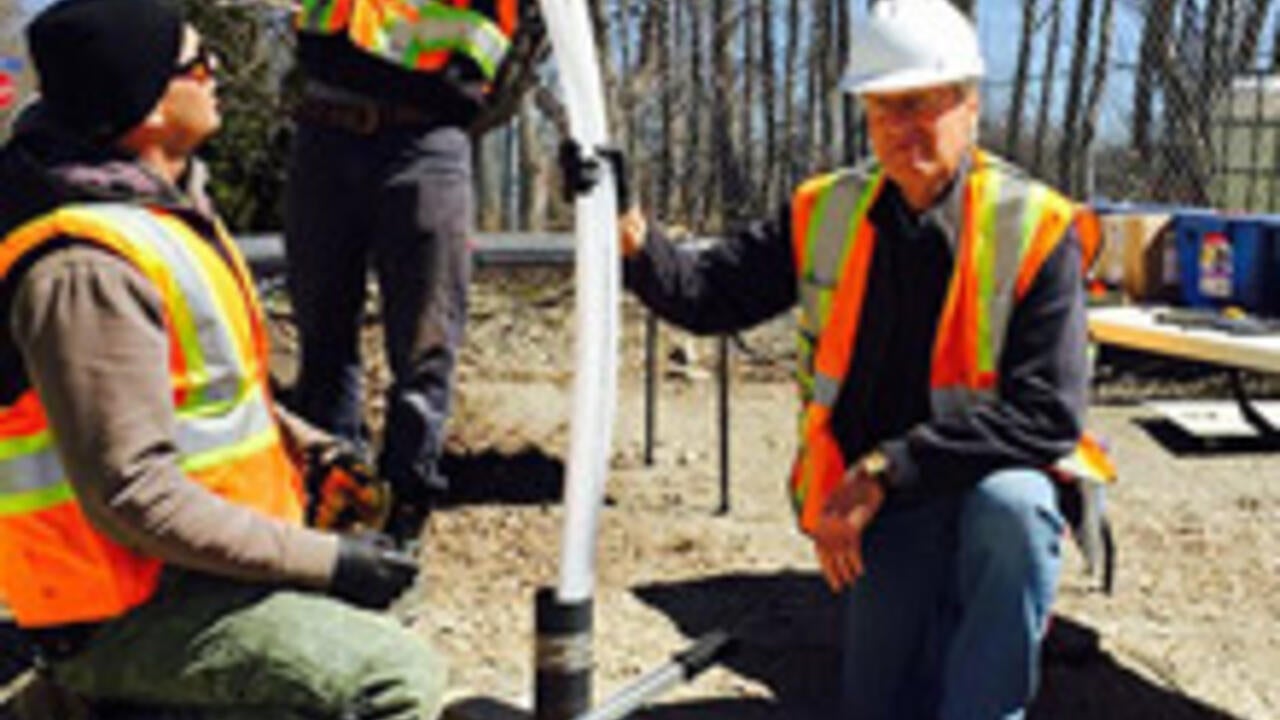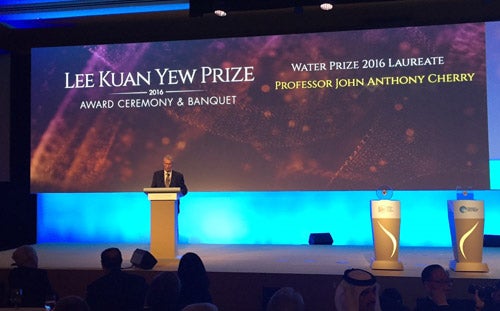
Waterloo groundwater expert receives prestigious water prize
The Lee Kuan Yew Water Prize draws attention to the importance of groundwater in the global water crisis, says Waterloo professor

The Lee Kuan Yew Water Prize draws attention to the importance of groundwater in the global water crisis, says Waterloo professor
By Amy Geddes Water InstituteA renowned Waterloo hydrogeology professor, who helped set global standards for safely disposing hazardous waste, received the 2016 Lee Kuan Yew Water Prize this week.
John Cherry, now a distinguished professor emeritus, is the first Canadian to receive the prestigious prize. Cherry, who spent his career dedicated to groundwater management and protection, received the honour in the company of water experts from around the world, including a Waterloo delegation, at Singapore International Water Week. The honour came with a prize of more than $280,000 CDN.
“It is a great honour for me to be the 2016 recipient of the Lee Kuan Yew Water Prize,” Cherry said in his acceptance speech. “I am most pleased because this prize granted to me draws attention to the importance of groundwater in the global water crisis.”

Cherry, who joined Waterloo’s Department of Earth and Environmental Sciences in 1971, worked to set benchmark criteria for choosing safe disposal sites for hazardous industrial and nuclear waste that were later adopted into regulatory frameworks around the world.
Cherry says he plans to use some of the prize money to update, translate and publish his Hydrogeologists Without Borders textbook online. In 1979, Cherry co-authored the book under the title Groundwater.
Read more about Cherry’s award and legacy, and watch the video below:

Read more
Here are the people and events behind some of this year’s most compelling Waterloo stories

Read more
Meet five exceptional Waterloo graduate students crossing the convocation stage as Class of 2025 valedictorians

Read more
Meet the 14 exceptional students representing Waterloo’s newest grads
The University of Waterloo acknowledges that much of our work takes place on the traditional territory of the Neutral, Anishinaabeg, and Haudenosaunee peoples. Our main campus is situated on the Haldimand Tract, the land granted to the Six Nations that includes six miles on each side of the Grand River. Our active work toward reconciliation takes place across our campuses through research, learning, teaching, and community building, and is co-ordinated within the Office of Indigenous Relations.